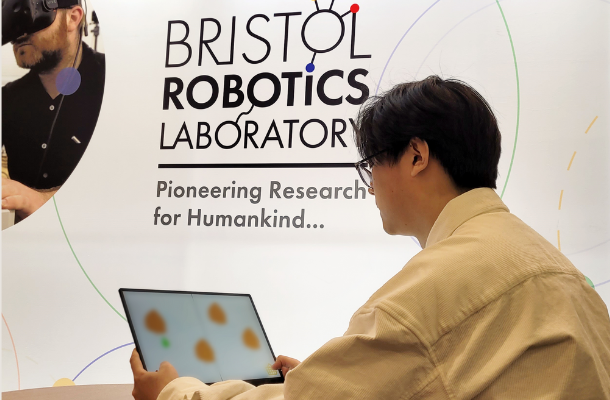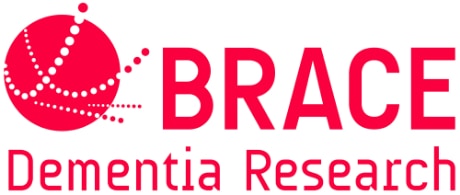
BRACE-funded academic works on pilot project to detect early stage Alzheimer’s
Dr Wenhao Zhang, Associate Professor of Computer Vision and Machine Learning and Co-Director of the Centre for Machine Vision (CMV), is leading on an new pilot project, with BRACE funding, to investigate the link between eye movements and cognitive decline in atypical ageing.
People with mild cognitive impairment (MCI), a condition linked with an increased chance of developing Alzheimer’s disease, report problems with their memory, thinking and executive function. Executive attention is a term used to describe the ability to effectively block outside distractions in order to focus on a single object or task, such as a conversation, cooking dinner or organising the weekly shop.
Problems with executive attention are one of the first non-memory related symptoms of Alzheimer’s. It is known that small alterations in normal eye movements may be related to a decline in attention and cognitive control. Wenhao’s research will investigate if new ways to measure subtle eye movement changes might be used to detect early-stage Alzheimer’s.
The research will design a gaming app on a smartphone or tablet to test higher-level thinking skills whilst tracking the eye movements of the user.
The app will give users various challenges which will induce different eye movement patterns while simultaneously altering the mental workload. Machine learning will then be used to compare the different eye movement behaviours. The team hope to be able to understand the relationship between eye movement and certain cognitive control processes in assessing the cognitive performance of the user.
If successful, the research will allow for a user’s cognitive decline to be measured using a simple mobile phone app in their own home and early intervention strategies implemented to help the patient.
This research forms part of CMV’s broader healthcare initiative that incorporates a wide range of applications with cutting-edge research in machine learning. The aim is to substantially improve the quality of life of individuals, including those at risk of dementia.
Wenhao commented:
“This project uniquely integrates three pivotal building blocks: a cost-effective, convenient, and highly accurate eye tracking method, an engaging gaming app for eliciting discriminative eye movement patterns, and state-of-the-art deep learning models for the analyses of these patterns. Through co-designing this approach with multidisciplinary experts and end users, this research holds the promise of addressing several fundamental and practical barriers, offering a reliable biomarker and a practicable tool for the early diagnosis of AD and potentially other types of dementia.”
Professor Melvyn Smith, Professor of Machine Vision in the CMV remarks:
“This project builds upon recent developments in machine learning to explore exciting new possibilities for recognising hitherto hidden changes in human behaviour indicative of early cognitive decline.”
Dr Nancy Zook, Associate Professor of Psychology at UWE Bristol notes:
“This research seeks to extend findings from neurocognitive assessment and machine learning to present an approach that is more sensitive, efficient, and engaging compared with traditional test batteries.”
Professor Myra Conway, Professor of Biomedical Science at University of Derby and University Theme lead for Biomedical and Clinical Science Research commented:
“This is an exciting novel cross-disciplinary approach to addressing clear unmet clinical needs in the early diagnosis of Alzheimer’s disease. Development of this non-invasive approach will have broad application and enhance existing diagnostic approaches.”
